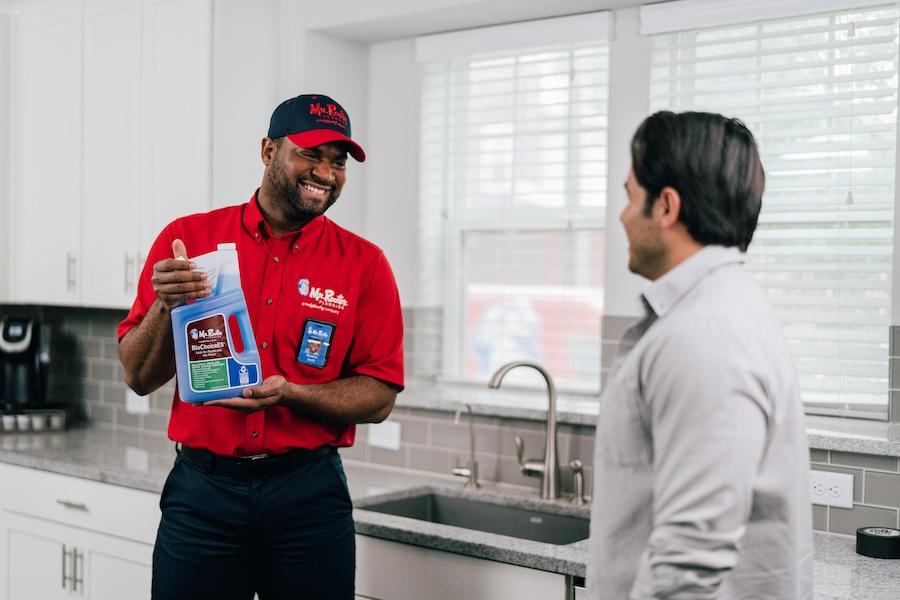Call This Monday to Get $50 Off
Schedule a Local Plumber in Morgantown Area - Call us Now to Get $35 OFF.
4.8 / 5 Ratings based on 794 reviews Great Plumbers, Great Reviews
Call This Monday to Get $50 Off
Schedule a Local Plumber in Morgantown Area - Call us Now to Get $35 OFF.

Have you noticed a foul smell emanating from your kitchen or bathroom? More than likely, the smell stems from your drains. Smelly drains are among the most common plumbing issues homeowners encounter. If you want to know how to get rid of drain odors, you’ve come to the right place.
Here at Mr. Rooter Plumbing, we offer professional drain cleaning services. As seasoned plumbers, we understand the measures you can take to keep your drains in good working order.
A smelly drain can be caused by a number of things, most commonly by built-up gunk or blockages in your pipes. Here are some of the culprits:
This is a quick and easy way to flush out any built-up grease or debris that might be causing drain odor. The skilled plumbers at Mr. Rooter Plumbing recommend you pour boiling water down the drain once a week to melt and flush away any grease or soap buildup.
Baking soda is a natural deodorizer and can help neutralize mild odors. You can use it alone or combine it with vinegar for a fizzing reaction that can help loosen grime. Here are the simple steps to follow:
The P-trap is the U-shaped bend under your sink or drain. It traps water to prevent sewer gases from entering your home. The P-trap should be cleaned every three months to remove any accumulated debris and gunk that can cause unpleasant odors.
The vent stack allows sewer gases to escape your home. If it's clogged or damaged, it could be the source of the odor. A clogged or damaged vent stack impedes air flow, creating a vacuum effect in the drains. Inspecting the vent stack is a job that should be left to a professional plumbing repair service.
Regularly cleaning your drains can help prevent clogs and odors from developing in the first place. You can use a plunger, a drain snake, or a bio-enzyme drain cleaner for this.
If the odor persists after trying the above methods, it's advisable to call a professional plumbing service. The experts can diagnose the problem and offer reliable solutions that will ensure your drains are in good shape.
If you’re experiencing recurring drain odors despite your best efforts to clean and maintain them, it might be time to schedule a professional inspection with a trusted plumbing service. Sometimes, recurring odors, clogs, and leaks can be a sign of an aging or deteriorating drain line. Our plumbers in Wetzel County will use specialized video cameras to view the insides of your pipes and diagnose the cause of the problem. They will be able to recommend the most appropriate action, which may include a drain line replacement.
Why You Should Have a Tankless Water Heater Hot water is one…
Read More+Common Water Heater Problems and How to Fix Them Water heaters are…
Read More+Water in Your Shower Not Hot Enough? Everyone deserves a nice hot…
Read More+